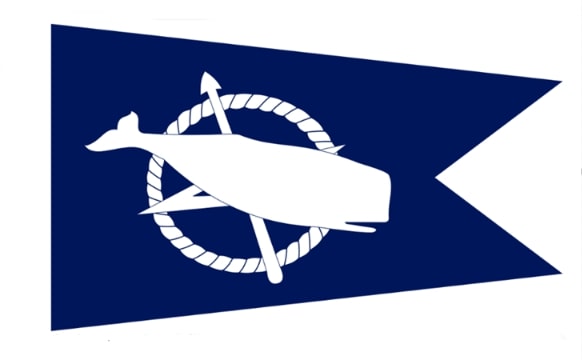Introduction: In this article, Melissa Davenport Berry begins a new series about the founders of Nantucket, Massachusetts, and their descendants. Melissa is a genealogist who has a blog, AnceStory Archives, and a Facebook group, New England Family Genealogy and History.
Today I begin a new series on the sons and daughters of the founders of Nantucket, Massachusetts. Among the surnames are Macy, Coffin, Starbuck, Hussey, Gardiner, Bunker, Folger, Coleman, Swain, and Mayhew.

As one source noted, to marry into one of “The First” families of Nantucket was esteemed an honor which the proudest might covet.
The scions born from the first groundbreakers were among the most skilled whalers in the world, making Nantucket the whaling capital.
And while these whalemen sailed the globe building an empire, scores of “she merchants” held the fort and independently engaged in commerce and developed trade contracts. This race of merchant princesses put Nantucket on the map as the third busiest seaport next to Salem and Boston.
The predominant sect that reigned over Nantucket was the Religious Society of Friends, or Quakers. Their belief in a spiritual democracy and simplistic faith had an absence of clergy, creed and sacrament; moreover, they gave women equality.
The adopted freedom principles by the Quakers bred generations of trailblazers who erected schools, made astronomical discoveries, and led the abolitionist movement.
While I continue to cover the tales and adventures of the “plain-clothed” millionaires, more will be revealed on their pioneer ancestors who motivated and spurred on their accomplishments.
In 1881 the first memorial to commemorate the island’s founders was unveiled.

Below the listed surnames on the monument reads this inscription:
Many of the descendants of these worthy sires have been distinguished for their courage and energy and left a record for others to emulate.
Please note there is also a memorial for the lady progenitors, and it will be featured in my next story. In addition, I am adding a few surnames (Pike, Greenleaf, Barnard, Pile, etc.) who should be noted as paramount to the settlement of this island.
To start, a great source to consult on Nantucket’s early history is former historian, newspaper editor, and author Alexander Starbuck (1841-1925), son of Frederick Gayer Starbuck and Chloe Hatch. He married Ella Maria Warren, daughter of Jonathan Leander Warren and Seraph Matilda Garfield. The couple had two sons.
Alexander is definitely a worthy scion of the island’s forefathers. His works include History of the American Whale Fishery, A Century of Free Masonry in Nantucket, and The History of Nantucket.
Alexander was one of the organizers of the Nantucket Historical Association and founder of the Sons and Daughters of Nantucket.
It is important to mention the contributions Alexander made to the preservation of Nantucket’s antiquities. His work can be found in the Starbuck Family Papers housed at the Nantucket Historical Association.
Here is a 1925 newsclip announcement for the publication of Alexander’s book The History of Nantucket, printed by C. E. Goodspeed & Co.
This article reports:
Nantucket
Exhaustive History of the Bay State’s Largest Island [Correction: Martha’s Vineyard is twice the size of Nantucket]
The name of Starbuck, like that of Macy, has been associated with Nantucket for close to 300 years. Many years ago, Obed Macy wrote a history of the island, and now Mr. [Alexander] Starbuck, often quoting from that earlier authority, writes a much more comprehensive history of the county, island and town, including genealogies of the families of the first settlers. It is a book of 871 pages, carefully documented and including copious extracts from the town records and also from other official documents and personal correspondence.
Mr. Starbuck begins with the visits of the Northmen, although they are largely legendary, and those of [Bartholomew] Gosnold and others who mentioned the island in their chronicles before Tristram Coffin, Edward Starbuck, Thomas Macy, Thomas Mayhew, Richard Swain, William Bunker and the other original purchasers and settlers definitely put the island on the map in the stormy days of religious persecution during the middle of the 17th century. Their descendants and later arrivals have kept it on the map ever since, and there has been no lack of stressful periods during the years that have followed.
To be continued…
Explore over 330 years of newspapers and historical records in GenealogyBank. Discover your family story! Start a 7-Day Free Trial
Note on the header image: flag of Nantucket, Massachusetts. Credit: NuclearVacuum; Wikimedia Commons.
